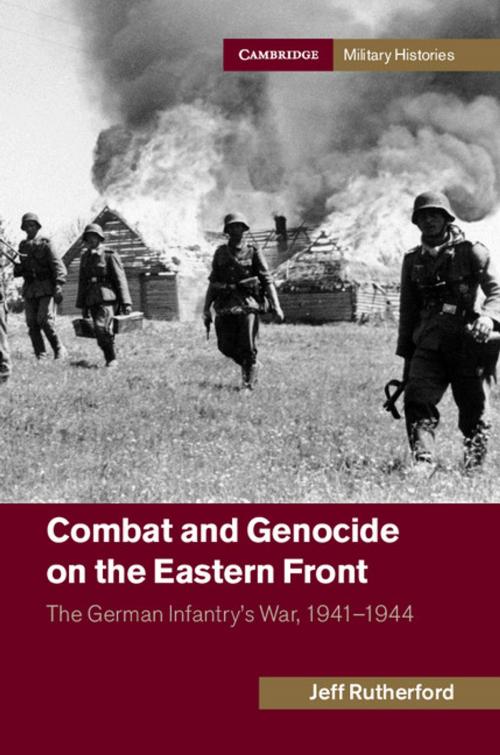Combat and Genocide on the Eastern Front
The German Infantry's War, 1941–1944
Nonfiction, History, European General, Military| Author: | Jeff Rutherford | ISBN: | 9781139986137 |
| Publisher: | Cambridge University Press | Publication: | July 10, 2014 |
| Imprint: | Cambridge University Press | Language: | English |
| Author: | Jeff Rutherford |
| ISBN: | 9781139986137 |
| Publisher: | Cambridge University Press |
| Publication: | July 10, 2014 |
| Imprint: | Cambridge University Press |
| Language: | English |
By 1944, the overwhelming majority of the German Army had participated in the German war of annihilation in the Soviet Union and historians continue to debate the motivations behind the violence unleashed in the east. Jeff Rutherford offers an important new contribution to this debate through a study of combat and the occupation policies of three frontline infantry divisions. He shows that while Nazi racial ideology provided a legitimizing context in which violence was not only accepted but encouraged, it was the Wehrmacht's adherence to a doctrine of military necessity which is critical in explaining why German soldiers fought as they did. This meant that the German Army would do whatever was necessary to emerge victorious on the battlefield. Periods of brutality were intermixed with conciliation as the army's view and treatment of the civilian population evolved based on its appreciation of the larger context of war in the east.
By 1944, the overwhelming majority of the German Army had participated in the German war of annihilation in the Soviet Union and historians continue to debate the motivations behind the violence unleashed in the east. Jeff Rutherford offers an important new contribution to this debate through a study of combat and the occupation policies of three frontline infantry divisions. He shows that while Nazi racial ideology provided a legitimizing context in which violence was not only accepted but encouraged, it was the Wehrmacht's adherence to a doctrine of military necessity which is critical in explaining why German soldiers fought as they did. This meant that the German Army would do whatever was necessary to emerge victorious on the battlefield. Periods of brutality were intermixed with conciliation as the army's view and treatment of the civilian population evolved based on its appreciation of the larger context of war in the east.















